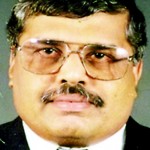Sunday Times 2
A registry of qualified medical specialists the need of the day
The recent tragic death of a doctor at a ‘cosmetic surgical clinic’ in Bambalapitya has once again raised issues relating to standards and quality of medical care and the qualifications and experience of doctors providing treatment to the general public in such specialised clinics. However, this was not the first time that such a tragic event has happened. In spite of the wide media publicity given to these mishaps, such activities continue.

Prof. Ananda Samarasekera
A country’s health care service, both in the private and government sectors, must essentially be regulated ensuring maintenance of minimum standards primarily relating to infrastructure and human resources. To achieve this, adequate legislation must prevail for the implementing agencies to act where necessary for enforcement and to punish those who violate them. Though the state health sector has a structured system with applicable laws and bylaws, comparativelythe private sector is not well regulated. In addition to general laws — such as the Medical Ordinance (Chapter 105) – which are applicable to both sectors, separate laws governing private medical institutions are needed to monitor the private sector health service. The Sri Lanka Medical Council (SLMC) established under the Medical Ordinance is the regulatory body for health care professionals and it has a specified role in the maintenance of minimum standards of the persons in different categories to practise in each discipline.
The primary duty of the Medical Council is to protect the public and uphold the reputation of the respective professional categories.
The Council does this:
n by maintaining and publishing registers of qualified or entitled persons to practise in each category in the recognized disciplines;
n by setting and monitoring the minimum standard of medical education;
nby giving advice on standards of the professional conduct and matters on medical ethics;
n by taking disciplinary action against those who are registered with the Council if it appears that they have become unfit to practise and continue to exercise the privileges of registration.
However, the Medical Ordinance does not differentiate specialists from non-specialist medical practitioners. Neither has it provisions to maintain separate registers for the two categories. As such in the eyes of the law a newly passed out medical graduate who has obtained the full registration after completion of the internship is no different to a doctor with postgraduate qualification as a specialist in any specialised branch in medicine with regard to licence to practice medicine in Sri Lanka. All are registered as Medical practitioners under section 29 of the Ordinance.
As a result those who do not have specialist qualifications are not legally prevented from practising as a specialist. Neither has the SLMC powers to take disciplinary action against those who pose as specialists and practise without specialisation. Though any person registered with the SLMC at his/her discretion can get his/her additional qualifications inserted against his/her name in the register in addition to the basic qualification but this does not give them legal status of a specialist. Since the SLMC is not vested with necessary powers to stipulate the qualifications and experience to recognise a medical practitioner as a specialist and to maintain a separate register of such medical specialists, it recently started compiling a list of medical specialists. Unfortunately this list is not comprehensive and without legal validity and merely a list compiled on voluntary basis.
The service minute published in the Government Gazette by the Ministry of Health has clearly laid down the qualifications required to be appointed as a specialist in the public sector. Accordingly, those who possess Board certification as a specialist in the respective specialty from the Postgraduate Institute of Medicine of the University of Colombo are only entitled to hold such positions in the government health sector. Similar requirement prevails in the state university medical faculties for senior academic positions in clinical disciplines. However, they are purely administrative requirements to hold a service position limited to government health sector.
In many other countries, medical specialists are separately registered with a registering authority and only such persons are permitted to practise as a specialist and to maintain specialist clinics. Therefore, the people are legally protected from those unsuitable and unqualified medical practitioners posing and practising as specialists. The registering authority is empowered to take punitive action against those who violate the law. In Sri Lanka, during the past few decades, the SLMC and other medical organisations have attempted on many occasions to persuade the authorities to amend the Medical Ordinance to include necessary provisions to establish a registry of Medical Specialists with no results.
The most recent victim is none other than a medical practitioner serving in the plastic surgery unit of a premier hospital in the government sector. She is the mother of two young children and the spouse of another professional. In spite of being a doctor herself she became a victim due to lapses in the health care regulatory system in the country. To perform its primary duty of protecting the public and upholding the reputation of the profession, the Medical Council as the regulatory body of the medical profession, must be vested with necessary powers. The primary duty of legislators should be in the best interest of the public.
(The writer is head of the Department of Forensic Medicine, Medical Faculty, SAITM, Malabe. He is the former vice president of Sri Lanka Medical Council, President of GMOA , President, Association of Medical Specialists, Chief Judicial Medical Officer – Colombo and Chief Forensic Medical examiner UNMIK.)

